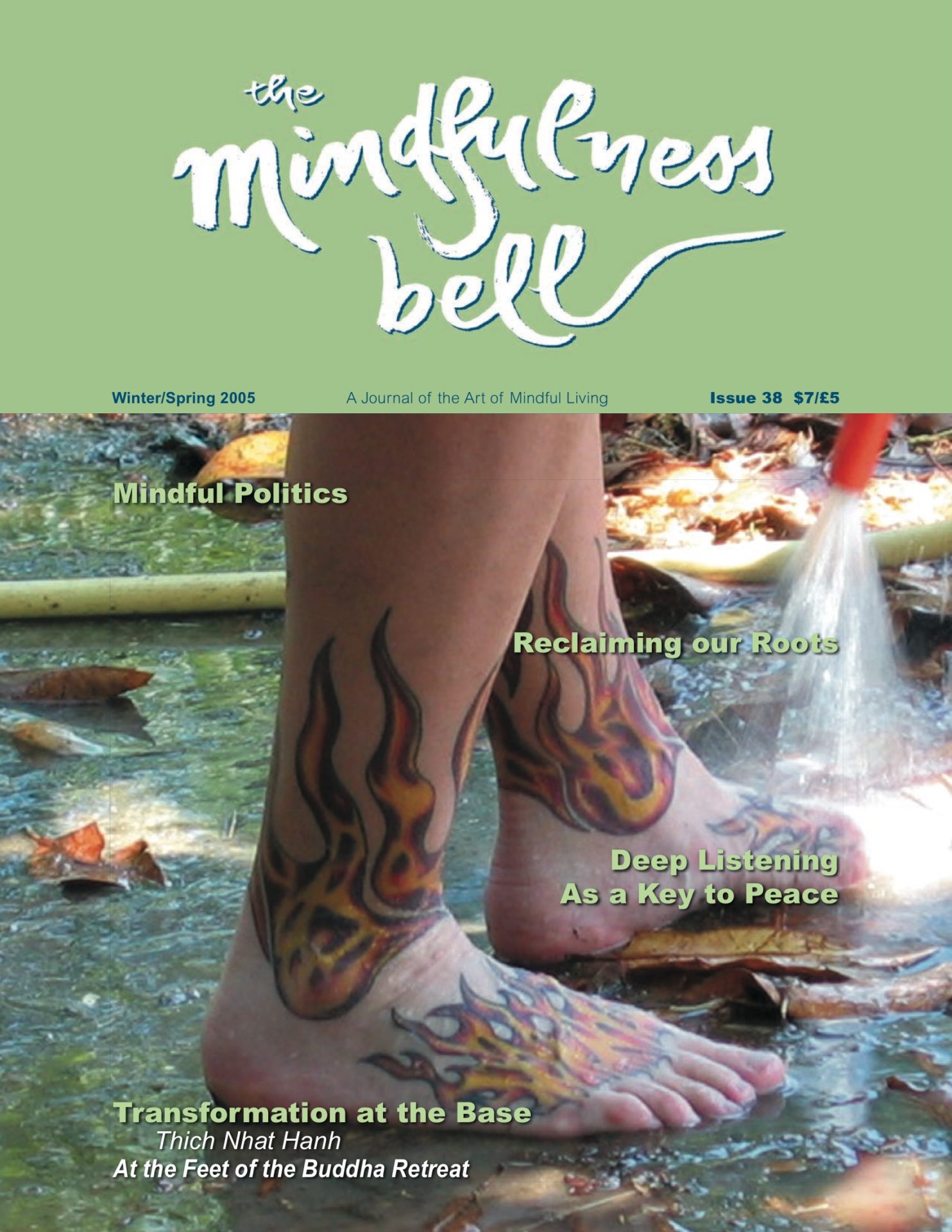
By Bill Williams
Recently, the Greater Hartford Sangha practiced a deep listening exercise during our Day of Mindfulness, held in a cozy home overlooking a beautiful lake in rural Litchfield, Connecticut.
First, I shared briefly from Thay’s teachings about the importance of deep listening. Deep listening is a high compliment to the person who is speaking because it means that I value what you’re saying, I care about you and want to hear your pain,

By Bill Williams
Recently, the Greater Hartford Sangha practiced a deep listening exercise during our Day of Mindfulness, held in a cozy home overlooking a beautiful lake in rural Litchfield, Connecticut.
First, I shared briefly from Thay’s teachings about the importance of deep listening. Deep listening is a high compliment to the person who is speaking because it means that I value what you’re saying, I care about you and want to hear your pain, distress, joy, and sorrow. In the Fourth Mindfulness Training we read, “Aware of the suffering caused by...the inability to listen to others, I am committed to cultivating...deep listening in order to bring joy and happiness to others and to relieve others of their suffering.” Because we have cultivated a strong tendency to judge, compare, interrupt, advise, or change the subject, we must practice to become empty and open to each other.
In this exercise, four people sit facing one another in a small circle in the middle of the room while the rest of the Sangha watches and listens. One of the four tells a story of deep personal meaning, while the others listen carefully. Then the first responder repeats the facts of the story, the second describes the emotions or feelings conveyed and the third relates the values involved. After that round, a second person tells a story and so on until each person has played all four roles.
The four participants included three men and one woman. Stephen told us how he met his wife; Rickey described a disappointing turn of events when she was producing a TV news segment; Nick recalled a reckless escapade when he was a newly licensed sixteen-year-old driver; I recounted events surrounding the death of my wife in 1998 from breast cancer.
When we finished, we went around the circle giving feedback about the experience, and then invited other Sangha members to do the same. Several themes emerged. There was general agreement about the importance—and the difficulty—of deep listening. It does not come naturally. Good listening is a skill that must be cultivated with patience and practice. We realized how hard it is to repeat the facts of a story, even minutes after hearing it. And it’s not always easy to sort out emotions and values. Variously, the four stories conveyed feelings of embarrassment, sadness, disappointment, fear, love, pride, and frustration. The values included forgiveness, courage, acceptance, commitment, determination, and trust.
Stephen initially was reluctant to take part in the activity, saying he was fearful of being judged and afraid he would not remember the facts of a story. But once we began, he felt at ease, secure in the embrace of the Sangha. Rickey liked the intimacy that was created. Nick found it valuable because he loves to tell stories but believed he was an awful listener. He was touched by Sangha members expressing that his parents were wonderful in showing such loving concern about his safety after he destroyed a family car driving recklessly. I was moved by the validation of hearing others reflect back to me the feelings and values important to me in my story.
Doing the exercise increased the intimacy, sharing, and connectedness between Sangha members. In our Dharma discussion later in the day, one member, a therapist, said she listens to people all the time in her work, but does not often get the chance to be heard. The long-term challenge is to carry the practice of deep listening into our daily lives in encounters with family members, friends, and colleagues. Continued practice with the Sangha will support us in this aspiration.
Bill Williams, Peaceful Friend of the Heart, is a host of the Greater Hartford Sangha, in West Hartford, Connecticut.

